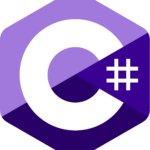Hire remote C developers that you can trust
Hire C developers from a unique network of 50,000+ pre-vetted offshore talents from Europe and Latin America, looking for a full-time contract. YouTeam developers stand apart for their ability to think like product managers and act like software architects. We also manage everything, so there’s zero overhead for your company.
Hire developers64 best C developers for hire on YouTeam in February 2025

Yuri
C Developer
Luis
Automation Developer
Dmytro
Senior DevOps Engineer
Beenelvi
Software Engineer
Mario Daniel
Senior Developer
Juan Manuel Suarez
Senior Project Manager
Marcelo
Software Developer
Bruno
Mobile Developer
Rostyslav
Senior Embedded C/C++ Engineer
Kenan
Embedded Systems DeveloperStart hiring to
see all talent
Hire
developers

Best Developer
Embedded Systems DeveloperTrusted by Fortune 500 companies and Y Combinator startups
Why hire C developers with YouTeam
 48-hour personalized matching
YouTeam handpicks the best-matched candidates.
48-hour personalized matching
YouTeam handpicks the best-matched candidates.
 Zero overhead
Locally-compliant contracts and billing
Zero overhead
Locally-compliant contracts and billing
 Dedicated white-glove support
Dedicated white-glove support






How to hire C developers with YouTeam
Share your requirements Set up a quick call with one of our Matching Experts — your dedicated contact at YouTeam.
Undergo Personalized Matching Your Matching Expert curates a candidate list, conducts pre-interviews, and ensures a perfect match for your needs—covering developers' skills, tech stack preferences, interests, and personality.
Meet the right candidates Review a list of candidates screened specifically for your request and pick the best for the interview stage. Average interview-to-hire ratio on YouTeam platforms: 1.75.
Hire and work with confidence YouTeam automates contract signing and invoicing through its secure system. Your dedicated Matching Expert stays with you throughout the collaboration with contractors.

Find developers skilled in related technology
More technologiesRead about C on our blog
 10 Advanced C Programming Interview Questions (+Expected Answers)
10 Advanced C Programming Interview Questions (+Expected Answers)
Svetlana Shevchuk
 Hiring developers with different tech stacks: how much does it cost?
Hiring developers with different tech stacks: how much does it cost?
Svetlana Shevchuk
About C
- Why C remains a preferred language for software engineers
- Key use cases for the C programming language
- Top tools for C software development
- What is the role of a C developer?
- C developers' experience levels: from junior to senior
- Tasks and responsibilities of a C developer
- Essential skills for a C software engineer
- Types of C developers: freelancers, in-house engineers, and outsourced developers
- How to write a C developer job description
- Hire C developers: Advanced hard skills assessment questions
C is a mid-level structured programming language that provides both high-level abstractions and low-level memory manipulation, making it suitable for creating a wide range of applications and systems, including operating systems like Windows and Linux. C is foundational for important software such as Git and various database systems, and it has influenced many programming languages, including C++ and Java.
Software engineers prefer C for several reasons:
- Versatility: C allows the development of a diverse array of software by incorporating features from both high-level and low-level languages.
- Rich Libraries: A wide range of libraries enhances development efficiency by providing built-in functionalities.
- Performance: C is known for producing high-speed applications, as it minimizes additional processing overhead.
- Foundational Learning: C serves as a strong foundation for understanding other widely-used programming languages, making it easier for developers to learn languages like C++ and Java.
C is a versatile programming language with a wide range of applications. Here are some key use cases:
1. Operating System Development
C is foundational for developing operating systems like Linux and Windows. Its low-level capabilities allow direct interaction with hardware, making it ideal for system-level programming.
2. Embedded Systems
C is widely used in embedded systems due to its efficiency and ability to work closely with hardware. It’s commonly found in devices like microcontrollers, automotive systems, and IoT devices.
3. System Programming
C is used for system-level programming, such as developing system utilities, device drivers, and file systems, where performance and low-level memory management are crucial.
4. Game Development
Many game engines and game development frameworks utilize C for performance-critical components. C allows for efficient memory management and fast execution, essential for real-time applications.
5. Database Management Systems
C is often used in the development of database management systems like MySQL and PostgreSQL due to its speed and ability to manage complex data structures effectively.
6. High-Performance Applications
Applications that require high performance, such as simulations, real-time processing, and large-scale computations, often use C for its efficiency and speed.
7. Compilers and Interpreters
C is frequently used to implement compilers and interpreters for other programming languages due to its efficiency and control over system resources.
8. Networking Applications
C is employed in developing networking applications and protocols, including web servers and other network-related tools, because of its ability to handle low-level network operations efficiently.
9. Scientific Computing
C is used in scientific computing and numerical analysis applications that require precise control over memory and performance optimizations.
Using the right tools is essential for efficient C software development. Here are some of the most popular options:
- Eclipse
A powerful IDE with cross-platform support, Eclipse offers features like syntax highlighting, code completion, and integrated Git support, making it ideal for collaborative projects. - Atom
Created by the GitHub community, Atom is a customizable text editor that supports plugins and has a built-in package manager. It enables developers to create applications efficiently with real-time collaboration features. - Visual Studio Code
This open-source editor is known for its robust debugging capabilities and extensive library of extensions. VS Code allows developers to tailor their environment and enhances productivity with intelligent code completion. - Code::Blocks
A free, user-friendly IDE specifically for C and C++ development, Code::Blocks features an integrated debugger and customizable interface, making it suitable for both beginners and experienced developers. - CLion
Developed by JetBrains, CLion offers advanced code analysis, refactoring tools, and built-in CMake support, making it ideal for complex projects with its smart navigation and integrated debugging features. - GDB (GNU Debugger)
This essential debugging tool allows developers to examine the internal workings of their applications, providing powerful features for setting breakpoints and inspecting variables. - Make
A build automation tool that simplifies project management by defining rules for compiling and linking code, ensuring efficient handling of complex dependencies.
A C developer is an IT specialist with deep expertise in the C programming language, primarily responsible for developing and maintaining system-level software, embedded systems, and performance-critical applications. Their key tasks include writing highly efficient and optimized C code for operating systems, device drivers, networking systems, and database engines. C developers work closely with hardware-level components, ensuring tight integration with system resources.
They are also responsible for debugging low-level memory management issues, optimizing code for performance and efficiency, and ensuring the software operates with minimal overhead. C developers often engage in troubleshooting complex system crashes, working with tools like debuggers and profilers to resolve issues related to concurrency, memory allocation, and system calls. They may also collaborate on projects involving real-time systems or firmware, where reliability and performance are critical.
C developers are categorized into three experience levels: junior, mid-level, and senior, each with varying responsibilities and expertise.
1. Junior C Developers:
Junior developers usually have less than two years of experience and are often focused on learning the intricacies of C programming. They work on simpler tasks such as writing basic C functions, debugging, and following pre-established development patterns. Under close supervision, they may assist with system integration or troubleshooting but rarely take on critical responsibilities. Their main goal is to build foundational skills, improve code quality, and gain experience with tools like compilers, debuggers, and version control systems.
2. Mid-Level C Developers:
Mid-level developers typically have between two to five years of experience. At this stage, they are more independent, capable of handling complex projects and writing optimized code. They often work on system-level software, embedded systems, or performance-critical applications. Mid-level developers are skilled at debugging low-level memory issues, managing system resources, and optimizing algorithms for efficiency. They are also responsible for integrating C code with hardware or other languages like C++ or Python, and may mentor junior developers.
3. Senior C Developers:
Senior developers have five or more years of experience and possess a deep understanding of C programming, system architecture, and hardware interactions. They take on leadership roles, overseeing large-scale projects like developing operating systems, network protocols, or real-time embedded systems. Senior C developers are experts in performance optimization, concurrency, and debugging complex issues such as race conditions and memory leaks. They also design system architecture, contribute to code reviews, and collaborate with cross-functional teams to ensure the software meets high-performance and reliability standards. Senior developers often guide teams, mentor other developers, and influence technical decisions on project direction.
Each experience level defines the complexity of projects a C developer can handle, from basic coding to leading advanced system development.
C developers play a critical role in both team-based projects and individual assignments, typically responsible for the following:
- Writing clean, efficient, and maintainable code in the C programming language.
- Troubleshooting and debugging complex issues to ensure optimal software performance.
- Optimizing code for performance by reducing memory usage.
- Developing libraries, embedded systems, and integrations with higher-level programming languages.
- Performing modifications, enhancements, and fixes in C programs, including interaction with VBA code where necessary.
- Conducting rigorous testing and ongoing maintenance of C-based code to ensure long-term reliability and stability.
C software engineers require a diverse set of skills to excel in their roles and effectively contribute to projects. Key skills include:
- Proficiency in C Programming: A deep understanding of C syntax, semantics, and programming paradigms is fundamental. Engineers should be adept at writing clean, efficient, and maintainable code.
- Understanding of Data Structures and Algorithms: Knowledge of common data structures (such as arrays, linked lists, and trees) and algorithms (including sorting and searching) is crucial for developing efficient solutions.
- Experience with Debugging and Profiling Tools: Familiarity with debugging tools (like GDB) and profiling tools (such as Valgrind) enables engineers to identify and resolve issues, optimize performance, and ensure code reliability.
- Knowledge of System-Level Programming: A solid grasp of operating system concepts, memory management, and hardware interactions is essential for developing system-level software and embedded applications.
- Familiarity with Development Environments: Proficiency in using integrated development environments (IDEs) such as Eclipse or Visual Studio, as well as version control systems like Git, is important for efficient development and collaboration.
- Strong Problem-Solving Skills: The ability to analyze complex problems and devise effective solutions is vital in software engineering, especially when working on critical systems.
When hiring C developers, there are three common working models to consider: freelancers, in-house engineers, and outsourced developers.
Freelance C Developers
Freelance C developers are ideal for short-term projects or tasks with low complexity. Their main advantage is availability — freelancers can often start the same day they’re hired. They also tend to be a more affordable option compared to other hiring models. However, the quality of work can be inconsistent, and freelancers may drop out unexpectedly, as they often juggle multiple projects at once. Additionally, finding a freelancer with the right skills and experience can be challenging, as top developers are usually engaged in long-term contracts or employed by tech companies.
In-House C Developers
For projects in the core development phase or for companies needing a dedicated team, in-house C developers are the best choice. They are typically the most engaged in the development process and are deeply motivated to improve the product. However, this model is expensive, as maintaining an in-house team requires a significant investment in salaries, benefits, taxes, and technology infrastructure. This option is ideal for long-term projects where deep integration and continuous development are necessary.
Outsourced C Developers
Outsourcing offers a flexible and cost-effective way to hire C developers. You can choose between two models: full outsourcing or staff augmentation. Full outsourcing means hiring a dedicated team that includes not only C developers but also QA testers, designers, and project managers. This approach is more affordable since many outsourced developers live in regions with lower living costs, yet they still bring high-level expertise. The staff augmentation model allows you to supplement your in-house team with one or more skilled C developers. This model provides access to a wide talent pool, allows for fast hiring, and offers cost savings since you only pay for the developers’ working hours.
Before you start hiring, it’s crucial to craft a well-structured and appealing job description to attract the best candidates. A clear job description can help filter applicants who align with your project needs and may even bring valuable ideas to the table. Here’s what you should include:
1. Job Title and Role Overview: Clearly state the position and provide a brief overview of the C developer’s role.
2. Required Technical and Soft Skills: List the must-have skills, both technical and soft.
3. Key Responsibilities: Outline what the developer will be responsible for.
4. Project Stage: Indicate whether the project is in core development or maintenance.
5. Project Expectations: Describe your expectations for the project and its outcomes.
6. Industry Background: Mention your company’s field. Developers with relevant industry experience can offer more tailored solutions.
To thoroughly assess a senior C developer’s expertise, consider asking the following questions:
- Can you explain memory management in C? How do you handle dynamic memory allocation and deallocation?
This question assesses the candidate’s understanding of pointers, memory leaks, and effective memory usage. - What strategies do you use to optimize the performance of C applications?
Look for answers that mention algorithm optimization, minimizing resource usage, or employing specific compiler optimizations. - Can you describe the difference between stack and heap memory allocation, and when you would use each?
This question tests knowledge of data storage, scope, and lifetime of variables. - How do you handle concurrency in C? What synchronization mechanisms do you employ?
Candidates should demonstrate familiarity with multithreading concepts and tools like mutexes and semaphores. - Explain the concept of undefined behavior in C. Can you provide examples of situations where this might occur?
This question evaluates the candidate’s understanding of language constraints and potential pitfalls in coding. - What is the role of preprocessor directives in C? Can you give examples of when you would use them?
Look for familiarity with directives like #define, #include, and conditional compilation. - How do you implement error handling in C? Can you provide an example of a robust error-handling strategy?
This assesses their ability to create resilient applications and understand return codes and error reporting. - Can you discuss your experience with C libraries and frameworks? Which ones do you prefer and why?
This gives insight into their practical experience and preferences in leveraging existing tools for development. - What debugging tools and techniques do you use when working with C? How do you approach troubleshooting complex issues?
This question helps to understand their problem-solving skills and familiarity with debugging practices. - How do you ensure code quality and maintainability in your C projects? What practices do you follow for code reviews and documentation?
This evaluates their approach to collaborative coding and long-term project sustainability.
These questions are designed to elicit in-depth responses that demonstrate a senior developer’s expertise and problem-solving capabilities in C programming.
FAQ about Hiring C developer
Why choose YouTeam to hire C developers?
YouTeam offers access to a highly qualified pool of C developers, helping you scale your team quickly. Each developer is thoroughly vetted, ensuring their skills, experience, and reliability. With partnerships across 500+ development agencies and over 50,000 developers, you can receive qualified candidates within 48 hours, making it a fast and reliable solution for your hiring needs.
How does YouTeam vet C software developers?
YouTeam follows a multi-stage vetting process. First, developers are sourced from trusted development agencies, ensuring they meet the necessary skill and experience requirements. Pre-screened candidates are then forwarded to clients for further interviews, allowing them to select the best fit based on specific project needs.
How much does it cost to hire the best C developers through YouTeam?
The cost of hiring C developers on YouTeam varies based on factors like expertise, location, and skills. On average, a C developer through YouTeam charges around $51 per hour, though rates can fluctuate depending on specific project requirements.
How quickly can you hire with YouTeam?
With YouTeam, you can hire developers faster than traditional methods. Here’s why:
1. Shortlist in 48 hours: Powered by our AI Matchmaker and human experts, we deliver a tailored shortlist of vetted candidates within just 48 hours.
2. Larger talent pool: As a marketplace, YouTeam offers access to a broader range of developers from hundreds of partner agencies, giving you more options than typical outsourcing agencies.
3. Seamless process: From the moment you request a call, our Matching Experts handle the rest, ensuring you quickly receive top-quality candidates who match your precise requirements.
With YouTeam, our clients have been able to build development teams within just a few weeks, not months.
What is the no-risk trial period for YouTeam developers?
• 1-Month Trial: You can terminate the engagement at any time during the first month.
• Free Replacements: If you’d like to replace a contractor, we’ll do it within two weeks, free of charge.
You can learn more by reading our Money-Back Guarantee.
How is YouTeam different from freelance portals for hiring C developers?
Unlike freelance platforms, YouTeam connects you with developers from trusted software development agencies, not freelancers. This ensures that developers have the necessary technical and soft skills, along with relevant experience. If a developer needs to be replaced unexpectedly, YouTeam can quickly provide a substitute of equal skill to avoid project delays.
How Is C developer salary different, and why?
C developer salaries vary significantly based on location and expertise. In the United States, the average annual salary for a C developer is approximately $110K, with salaries in major tech hubs like New York and San Francisco reaching up to $140K or more due to the high cost of living. In contrast, salaries in Latin America typically range from $40K to $70K per year, while in Eastern Europe, they range from $45K to $75K annually. These differences highlight the potential for cost-effective offshore hiring, as many businesses can access highly skilled C developers at a fraction of the cost compared to the US market.
Reviews
“It's just much more convenient to find a small team. I talk to one person, get 5 hand-picked CVs, interview candidates, hire the best ones – and I’m done!”
“Every time YouTeam sends me a list of potential developers, I am confident that I can interview pretty much anybody and they will be a good candidate.”
“The decision to use YouTeam was made by comparing them directly to the other candidates. As soon as I started talking to them, YouTeam adopted a hands-on approach. Time-wise, YouTeam also performed well.”
“We will definitely continue with them in the future. I’m so happy with their work that I’ve recommended them to my other company as well. There were no issues, it was really good. I gave a very loose brief, and the developer who worked for me had enough initiative to tighten it up by asking relevant questions. There was no messing around—it was done really well, with good, clean code.”
“YouTeam was very quick and responsive. I was presented with great candidates in just days, which was fantastic for me because we were looking to move fast. They had experience working on similar projects to exactly what we needed.”
“We wanted to boost our capacity for a period of six to twelve months. I decided to get a shot with YouTeam is that in any other place I can't say that I'm looking for a team of 5 developers with the possibility to scale. Now I returned to them again - this time for the confidence. If somebody is on the YouTube platform, you know that they've met a certain threshold of customer satisfaction, they've got a history of successful work elsewhere.”










